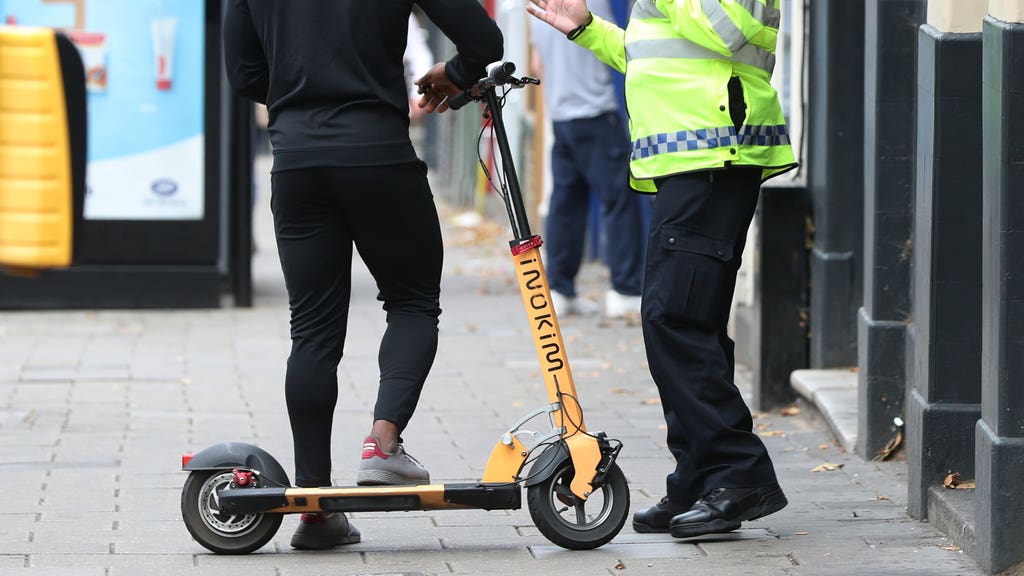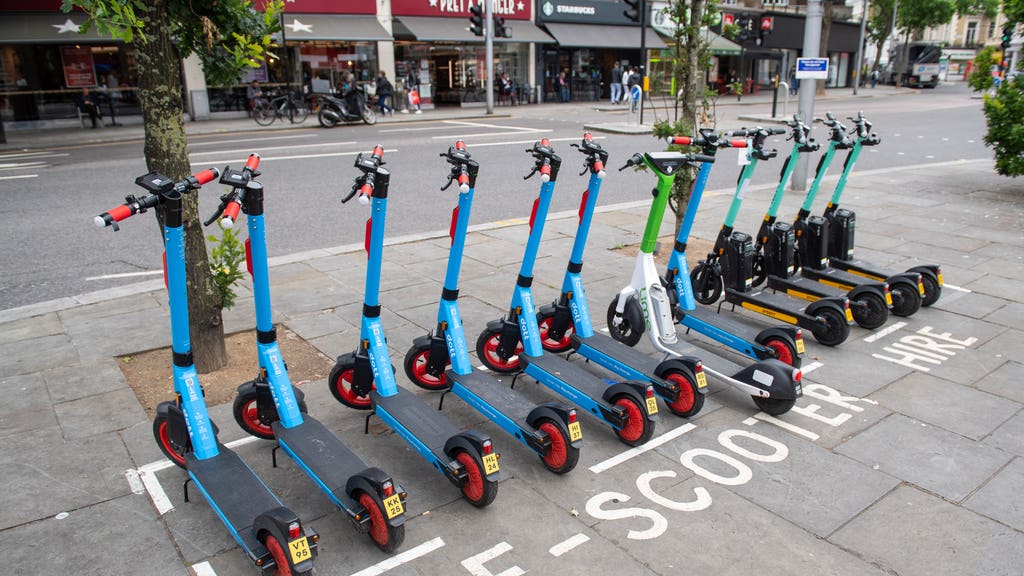Black Londoners ‘three times more likely to be stopped for using e-scooters’
Exclusive: Provisional figures obtained from Freedom of Information requests by charity Possible have indicated stark racial disparities

Black Londoners using e-scooters are three times more likely to be stopped and twice as likely to face a potential prosecution than their white counterparts, provisional new figures indicate.
Black residents of the capital are also half as likely to be allowed to continue on with a warning and face no further action, the figures, obtained by Freedom of Information requests by climate charity Possible, show.
E-scooters are an increasingly popular form of transport but occupy a legal grey area in the UK; they are widely available for purchase but cannot be used on public pavements and roads as they do not conform to vehicle standards regulations.
In many cities, including London, exemptions have been introduced to allow trials of hire schemes, but that now means the UK has a confusing stance on these vehicles –allowing some while simultaneously barring others.
The figures “reveal yet another disparity in Met policing that disproportionately affects Black people,” said Hirra Khan Adeogun, head of Car Free Cities at Possible.
“Micromobility vehicles, like e-scooters and e-bikes, are essential ingredients to decarbonising our cities’ transport infrastructure, and they should be welcomed in our cities.
“Usage restrictions on privately owned e-scooters are not only a continuing roadblock to a more sustainable transport system, they also contribute to racist outcomes.”
New Transport for London data shows that in June 2021 alone, around 35,000 trips were made with shared e-scooters in London’s trial schemes – yet in the same month the Metropolitan Police seized over 1,100 privately owned e-scooters from Londoners.
Possible’s analysis of the data provided by the Met shows that of 151 e-scooter offences, Black people accounted for 52 police stops and white people accounted for 68 which, when compared with their London population, presents a three fold disparity.
Black Londoners were 71 per cent more likely to face prosecutions for e-scooter offences compared with 39 per cent of their white counterparts.
The rate of ‘No Further Action’ resolutions to e-scooter offences among white Londoners was 16 per cent compared with 10 per cent of Black Londoners.
However, according to Possible, the Met’s data team have refused to disclose any further ethnicity data on the rides, on the grounds that they have now penalised so many Londoners for private e-scooter use that processing this data would be too costly.
The charity has now referred the Metropolitan Police Service’s decision to the UK Information Commissioner.
The early findings add to ongoing disparities around the controversial stop and search policing tactic; existing data shows that young Black males are already up to 19 times more likely to be stopped by the police in the capital.
In total the Met seized almost 3,000 e-scooters from Londoners from January 2021 to mid-August 2021 – 10 times the number confiscated over the whole of 2020.

This comes as a trial of e-scooters in London was expanded across the City of London, Southwark and some parts of Lambeth in July, taking the total number available to rent in the capital to 1,200.
Transport for London said it is in discussions with London councils and other boroughs about further expansions in the coming months.
As e-scooter hire schemes gain more traction in the UK, it raises questions around why private-use e-scooters still remain illegal and how this area of city transport can disproportionately affect Black individuals.
The UK is one of only two countries in the world in which e-scooters are still illegal on public roads, research from Halfords suggests.
However, data indicates that privately owned e-scooters are more likely to replace car journeys than rentals, as well as resulting in lower carbon emissions per passenger mile, meaning they are likely to have greater potential to help meet climate goals.
Charity Guide Dogs, on the other hand, has called for the sale of private high-speed e-scooters to be banned, and expressed fears that their use means some people with sight loss are being forced to change their route or avoid independent travel altogether.
The Metropolitan Police has been approached for comment.
Join our commenting forum
Join thought-provoking conversations, follow other Independent readers and see their replies
Comments
Bookmark popover
Removed from bookmarks